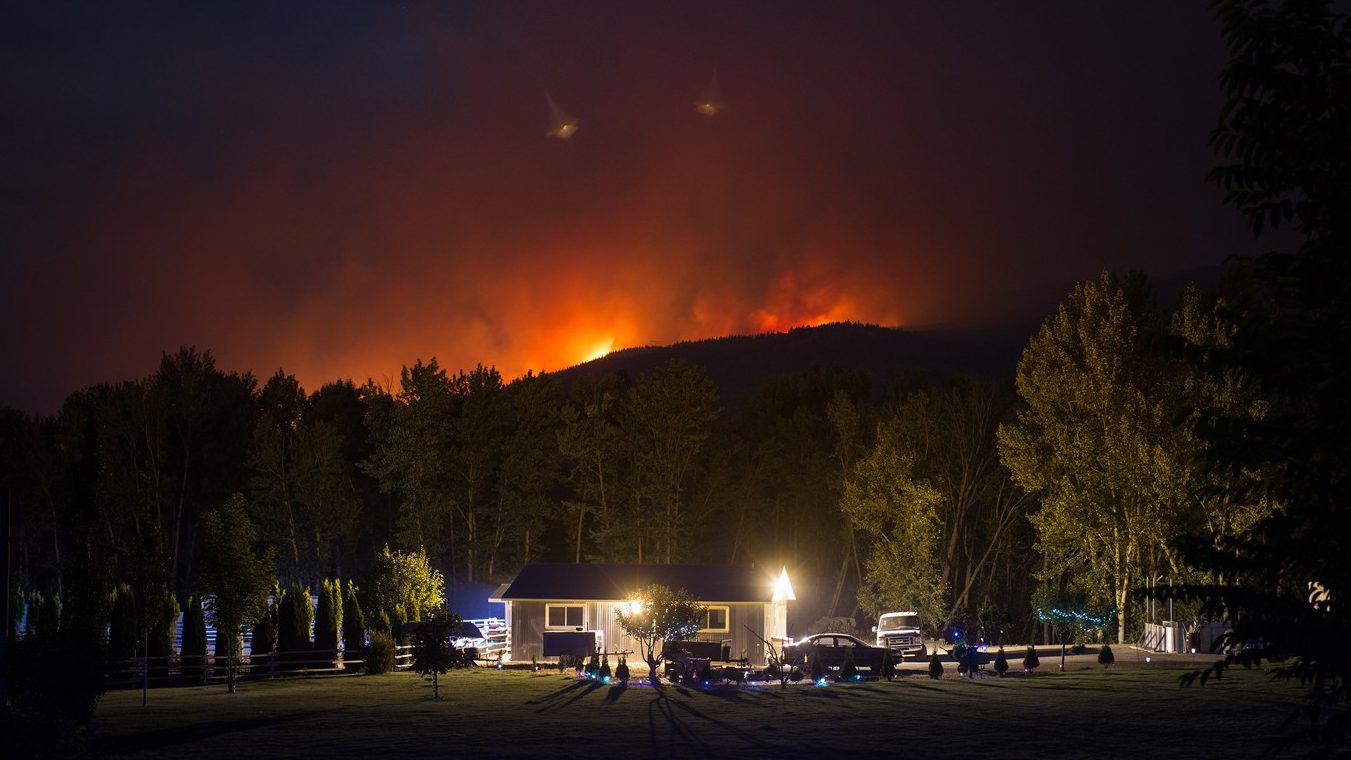B.C. Wildfires Continue to Challenge Ag

According to the Canadian Cattlemen Association, 2.25 million acres of land has burned since the wildfires began, making it the largest fire season in recorded history for the province
Allison Finnamore with files from the Canada Press – Farm Credit Canada (FCC)
The majority of the land is what cattle producers depend on for grazing and raising herds.
CCA estimates in excess of 30,000 head of cattle and 300 producers are directly impacted by the blazes; however, as the wildfires continue to burn, the numbers continue to change.
“Adequate feed is being sourced to meet the needs at present but very few of the cattle have come home or been found due to ongoing fires,” CCA states, noting the B.C. Cattlemen Association has access to much of the hay in evacuated areas and is trying to bale as much as possible. Not only is the hay a feed source, but it’s also a fuel source to the fires. “The hay land, especially that which is irrigated, is proving to be the lands that are breaking the fire.”
Fencing losses on both Crown and private land is classified as significant and a necessity to get ranchers back in business. CCA says the provincial government has committed funds to cover all the fences destroyed on the highways, about 100 kilometres so far. BCCA is contracted to construct these fences and will also administer the range fencing.
“These fires have caused unprecedented impacts for not only the cattle industry, but for all of the rural communities”
Assessing costs
Federal Agriculture Minister Lawrence MacAulay and B.C. counterpart Lana Popham issued a news release that says they are working quickly to assess the extraordinary costs incurred by B.C.’s food producers.Assistance is being considered to help farmers and ranchers return to full production.
The extra help could cover everything from costs related to feeding, sheltering, transporting and ensuring the health of livestock to the expenses of re-establishing crops and pastures wiped out by the fires.
Kevin Boon, general manager for the BC Cattlemen’s Association, is pleased the federal and provincial governments are working together to help producers.
“These fires have caused unprecedented impacts for not only the cattle industry, but for all of the rural communities,” Boon says.
Bottom line
MacAulay says the goal is to get B.C.’s food producers back in business as quickly as possible, and Popham says the AgriRecovery disaster framework can help with that.












